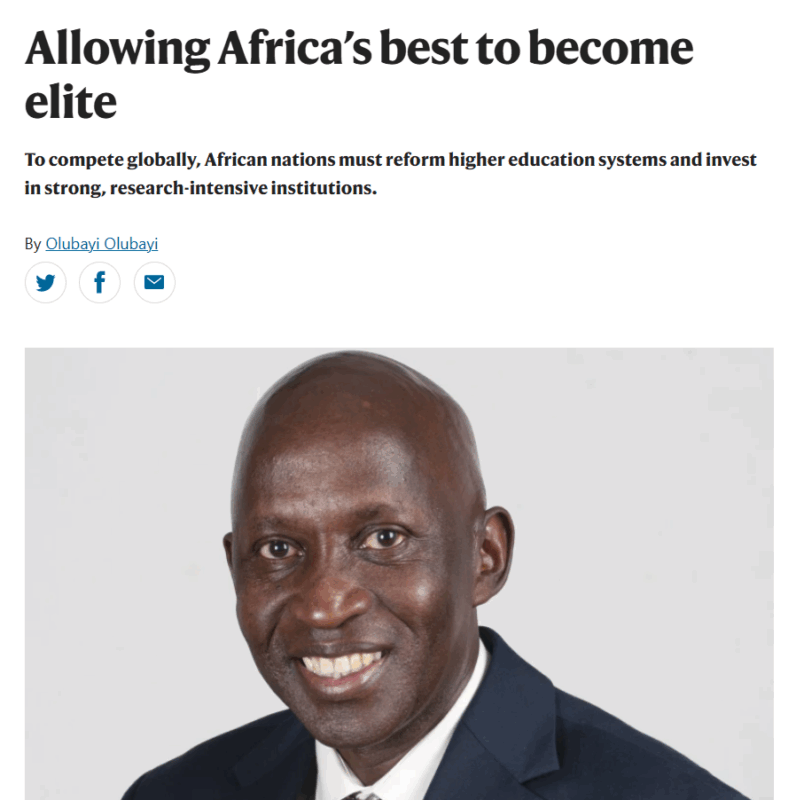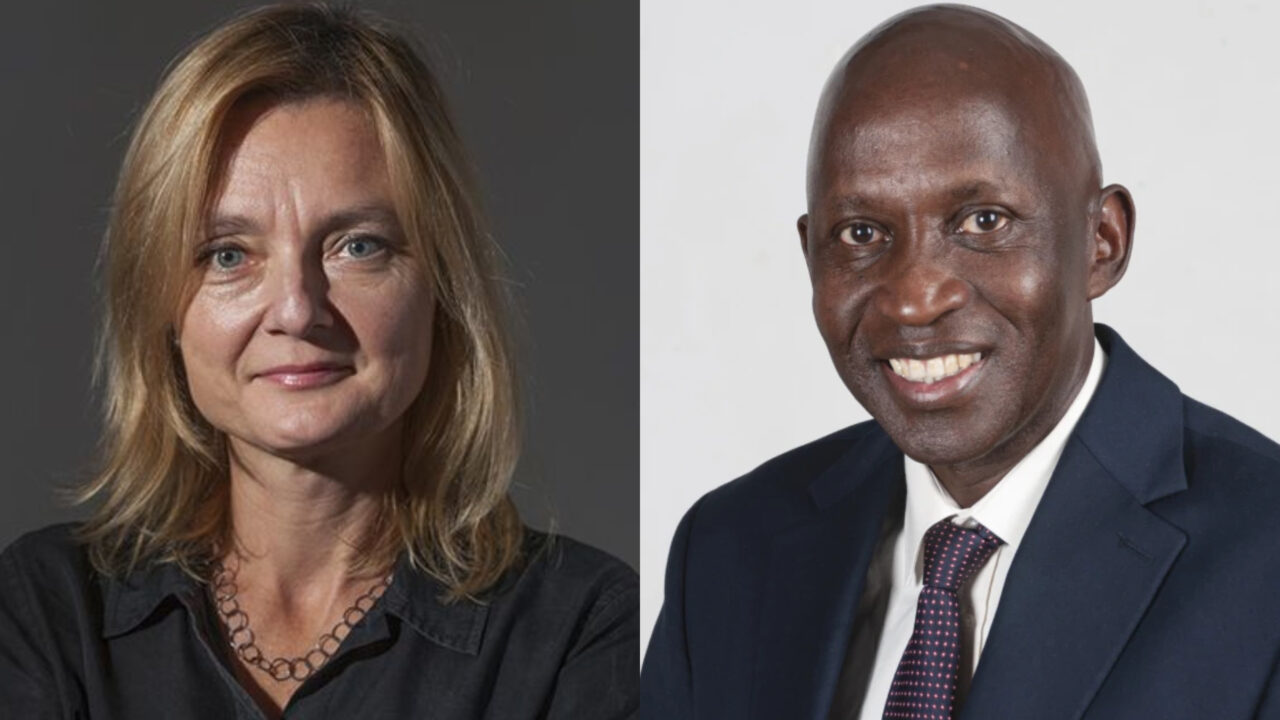Magdalena Skipper, Editor in Chief of Nature Portfolio, shared a post on LinkedIn by Abdullahi Tsanni, Associate Editor of Nature Africa, about an article by Olubayi Olubayi published in Nature Africa:
“A terrific piece in Nature Africa by a thoughtful scholar and social entrepreneur, Olubayi Olubayi. He is also a charismatic speaker – I was privileged to have a chance to hear him speak and, in fact, to introduce his lecture at last year’s African Academy of Sciences meeting in Abuja.
Great advice here for the African higher education system, borne out of insightful observations on how higher education has evolved globally.
‘There cannot be a separate African or Asian or European criteria for evaluating science, technology and research. To contribute to global outputs effectively, African countries should change strategy and establish one elite research-intensive university per country.’ “
Quoting Abdullahi Tsanni’s post:
“To compete globally, Africa must fund and reform its higher education systems.
Kenyan academic Olubayi Olubayi argues in this new commentary for Nature Africa that African countries should create at least one elite, highly selective, research-intensive public university – similar to Harvard, Oxford, or the Indian Institute of Science – by reallocating existing national funding, rather than trying to raise the quality of all universities at once.
In countries like Nigeria, we try to improve all universities evenly, which spreads resources too thin. Even the process of getting research funding from national institutions like the Tertiary Education Trust (TETFUND) has been corrupted and politicized. The result? We’re left with dozens of ‘centres of excellence’ stuck inside underfunded universities across the country that can’t compete globally.
Olubayi suggests that countries like Nigeria should select one university and turn it into a globally competitive institution and use a merit-based, selective system to attract the best students and researchers.
It is a big shame that no African universities (except in South Africa) are in the top 200 global rankings of world universities. These rankings, while not perfect, reflect research quality, innovation, and talent development. This poor performance in higher education is linked to Africa’s lack of industrialization and poor use of our natural resources.
Some of the world’s best-performing higher education systems have tiered (dual-track) university systems:
- A small number of elite universities at the top
- A larger number of general universities below.
These elite universities attract and more funding, better researchers, and top students.
‘Africa’s history shows the continent was not always at the bottom of the world’s knowledge hierarchy…To contribute to global outputs effectively, African countries should change strategy and establish one elite research-intensive university per country,’ writes Olubayi.”
Title: Allowing Africa’s best to become elite
Author: Olubayi Olubayi
You can read the Full Article on Nature Africa.

More posts featuring Magdalena Skipper.


